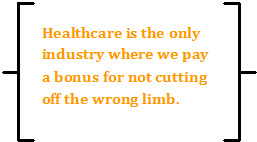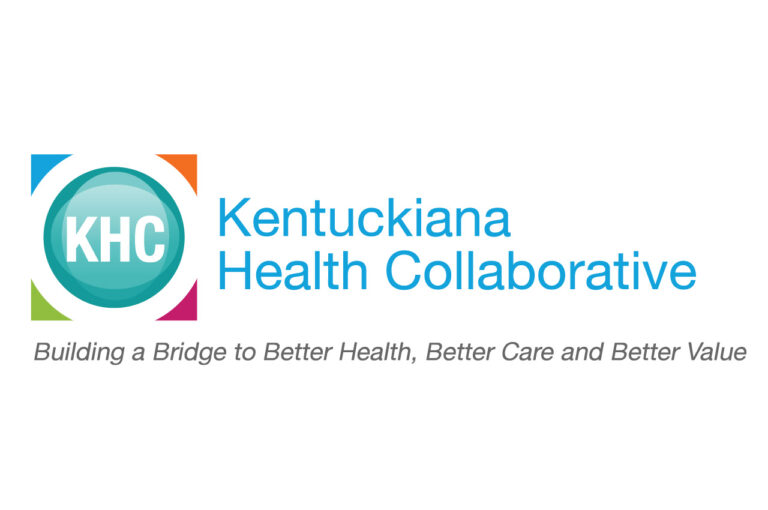KHC Co-Executive director Teresa Couts and I recently attended the National Alliance of Healthcare Purchaser Coalitions (NAHPC) annual conference in Arlington, Virginia. The NAHPC represents more than 50 coalitions, including the Kentuckiana Health Collaborative, representing 12,000 healthcare purchasers that provide health coverage to over 45 million Americans. Their annual conference brings employers of all sizes and industries together to learn about effective approaches to managing health, well-being, and healthcare.
One of the highlights of the conference was the coalition round table discussions where we learned about other coalitions’ activities and priorities. Many of the coalitions are working on managing pharmacy drug spend and making hospital quality and cost more transparent, and some coalitions are working on value-based payments and their communities’ opioid epidemics. It was inspiring to hear about the great work happening across the country, and Teresa Couts and I have several follow up conversations scheduled with our sister coalitions working on similar activities.

One of the most fascinating panels was on the current health policy perspective of leading health policy experts. The stage was set when Ceci Connolly, President and CEO, Alliance of Community Health Plans, commented that “healthcare is the only industry where we pay a bonus for not cutting off the wrong limb.” James Gelfand, Senior Vice President, Health Policy, The ERISA Industry Committee, raised concern that the Cadillac tax may stay and the device tax may go. He feels employers are at the edge of innovation and cannot innovate harder to deal with a 40 percent Cadillac tax. He believes employers must help reduce healthcare prices rather than just cost shifting to employees. Paige Winfield Cunningham, Health Policy Reporter, The Washington Post and author of Health 202, believes eliminating the cost-sharing reductions (CSRs) may have improved the ACA market rather than undermining it. She believes legislators should focus their efforts on innovation in Medicaid to reduce costs. Stephanie Armour, Business Health Policy Reporter, The Wall Street Journal, made the most concerning and illuminating comment when asked what progress she expected to see from the government on healthcare costs in the next decade. She indicated that she didn’t see the federal government helping with healthcare costs, but sees them continuing to move chairs on the Titanic. The takeaway from this panel was that top health policy experts believe employers must take a more active role when it comes to reducing healthcare costs.

My favorite panel had some of the nation’s biggest payment and delivery reform influencers. Rob Andrews, CEO, Health Transformation Alliance, indicated that consumers have more information for picking a phone plan than for picking a heart surgeon. He doesn’t believe employers should be happy anymore with proxies for healthcare quality but rather need to demand measurement of health outcomes. He also believes employers should take an active role in demanding that the Centers for Medicare and Medicaid Services (CMS) move forward with value-based payment rather than retreat. David Lansky, CEO, Pacific Business Group on Health, who leads one of the most innovative and progressive business coalitions in the country, noted that most employers in America are moving at a snail’s pace and are unwilling to be bold and make big steps. He challenged purchasers to measure healthcare for the public to be able to make decisions around healthcare quality and cost. He called on employers to only pick a health plan that can improve health, be nimble, and use innovative payment models. Leah Binder, President and CEO, The Leapfrog Group, cautioned folks to not ignore quality when defining value. Binder indicated that in community efforts to improve care that the providers take over and overshadow the purchasers’ voice, when efforts should begin with what employers want before pulling together a multi-stakeholder effort to solve the problem. Suzanne Delbanco, President, Catalyst for Payment Reform (CPR), suggested there should be multiple core measures sets based on whether you are a provider, purchaser, consumer, or a payer. CPR has put out the purchaser priority measure set based on the greatest spend and greatest variation of quality and cost. The KHC agrees on the need for a core measures set and has recently embarked on a new effort with the Kentucky Department of Medicaid Services to create a Kentucky Core Healthcare Measures Set that will incorporate the provider, purchaser, consumer, and payer perspective.
Todd Bisping, Global Benefits Manager, Caterpillar, was part of the pharmacy value panel. He doesn’t believe there is any place for drug rebates anymore, because they create waste. According to Bisping, the Pharmacy Benefit Managers (PBMs) tell the employers that the pharmaceutical industry is holding them hostage with prices, and the pharmaceutical industry indicates that the PBMs are holding them hostage by not being transparent. He noted that the drug purchase is a big show that is claimed to be transparent but is not. Neal Masia, Vice President, Patient & Health Impact Centers of Excellence, Pfizer Inc., stated that the rebate pie has gotten bigger for employers, yet they haven’t been getting part of that bigger pie. Jason Twombly, Senior Vice President, MedImpact Healthcare Systems, Inc., believes rebates can improve costs if used properly, and the money is given back to the plan and the employer. He indicated there is 30-40 percent waste in pharmacy benefits.
In closing the conference, Mike Thompson, President and CEO, National Alliance, noted that the majority of America’s healthcare focus is on the Affordable Care Act (ACA) which is a small part of the overall problem. He believes the real problems that are driving the costs and issues are not being addressed. To bring it all together, Jessica Brooks, President and CEO, Pittsburgh Business Group on Health, insightfully commented that every other sector of the healthcare system is consolidating to have more power except for the employers. The call to action for employers was to be bold and to take the healthcare wheel.






